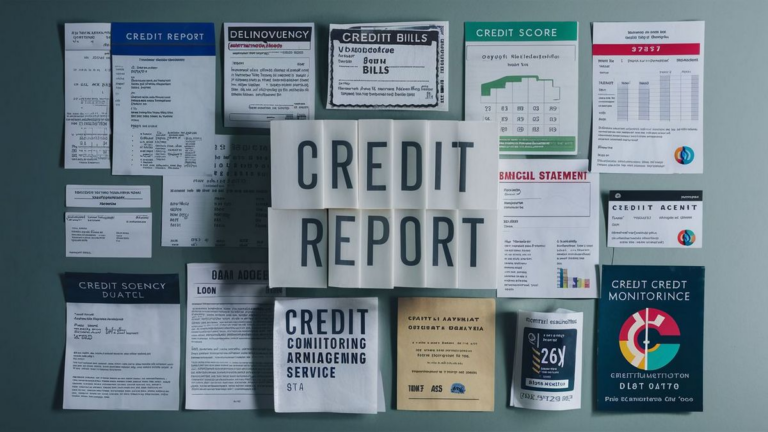Delinquency on a credit report refers to the failure to make timely payments on debts or loans. This term carries significant weight in the world of finance and can have lasting effects on an individual’s financial standing.
The Significance of Delinquency
When a borrower fails to make payments by the due date, creditors typically report this delinquency to credit bureaus. These reports become part of the individual’s credit history and can negatively impact their credit score. Lenders use credit scores to assess the risk of lending money to an individual.
Types of Delinquencies
Delinquencies can be categorized based on the severity of the late payments:
- 30-Day Delinquency: Occurs when a payment is overdue by 30 days or less. While it may not have a severe impact on credit scores initially, it still signifies a payment issue.
- 60-Day Delinquency: Indicates a payment that is overdue by 60 days. At this stage, creditors may start to take further action, and the negative impact on credit scores becomes more significant.
- 90-Day Delinquency: This level of delinquency suggests a payment overdue by 90 days. It can result in serious consequences, including higher interest rates, collection efforts, and a substantial drop in credit scores.
- Charge-Off: After approximately 180 days of non-payment, creditors may charge off the debt, considering it unlikely to be recovered. A charge-off is a severe mark on a credit report and can stay on record for up to seven years.
Impact on Credit Scores
Delinquencies can significantly harm credit scores, making it challenging to obtain new credit or loans in the future. They indicate to lenders that the borrower may not be able to manage their debts responsibly, leading to increased risk.
Recovery from Delinquency
Recovering from delinquency requires proactive steps and time:
- Payment Plans: Setting up payment plans with creditors can help individuals catch up on overdue payments and avoid further damage to their credit.
- Financial Management: Improving financial habits, such as budgeting and prioritizing payments, can prevent future delinquencies.
- Credit Counseling: Seeking assistance from credit counselors can provide guidance on managing debt and improving credit scores.
Delinquency on a credit report signifies missed or late payments, which can have serious repercussions on an individual’s financial health. Understanding the types of delinquencies and their impacts is crucial for maintaining a positive credit history and overall financial well-being.
Frequently Asked Questions about Delinquency
Here are some common queries regarding delinquency on credit reports:
| Question | Answer |
|---|---|
| How long does delinquency stay on a credit report? | Delinquency can stay on a credit report for up to seven years, depending on the severity. For example, a 30-day delinquency might not have as long-lasting an impact as a charge-off. |
| Can delinquency be removed from a credit report? | In some cases, delinquencies can be negotiated or disputed with creditors. However, if accurate, they are generally challenging to remove before the seven-year period. |
| How does delinquency affect loan applications? | Delinquency can significantly affect loan applications by lowering credit scores, making it harder to qualify for new credit or loans. Lenders may view delinquent borrowers as high-risk. |
| Is there a difference between delinquency and default? | Yes, there is a difference. Delinquency refers to late payments, while default occurs when a borrower fails to repay a loan according to the terms of the agreement, usually after a prolonged period of non-payment. |
Preventing Delinquency
Understanding how to prevent delinquency is essential for maintaining a healthy credit profile:
- Automated Payments: Setting up automated payments for bills and loans can help ensure payments are made on time, reducing the risk of delinquency.
- Emergency Fund: Building an emergency fund can provide a financial safety net, helping to cover expenses during difficult times and preventing missed payments.
- Regular Credit Monitoring: Monitoring credit reports regularly can help individuals catch delinquencies early and take steps to address them promptly.
See also:






